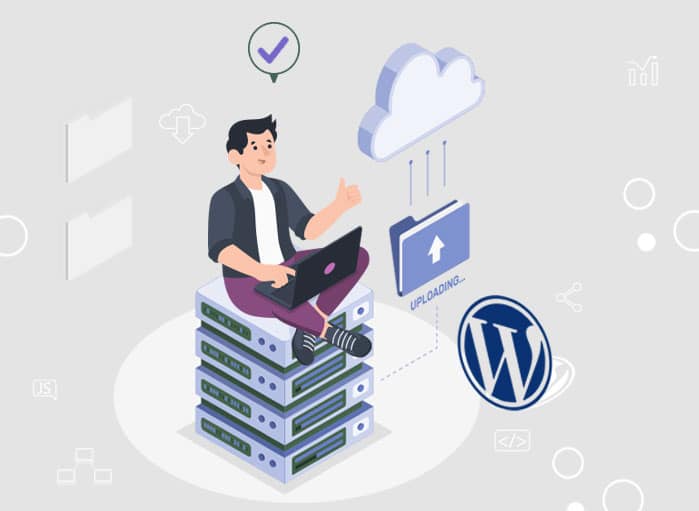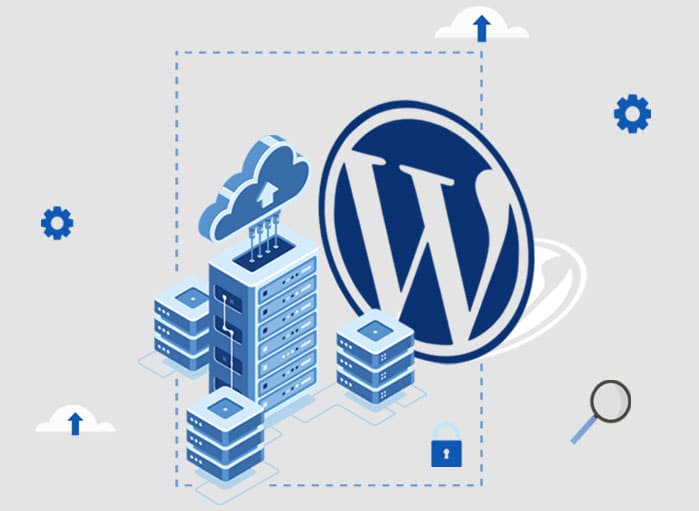
Shared vs Dedicated vs VPS: Choosing the Right Managed WordPress Hosting for You
Tags: Managed WordPress Hosting,WordPress


Running a WordPress website is decidedly an engaging endeavor, with the nifty platform helping businesses leverage content creation and community building to drive the brand forward in the modern digital world. Before one can truly unlock the full potential of WordPress, a crucial decision must be made: choosing the right managed hosting service.
You see, as the traffic to your website experiences a surge, concerns about its capacity to withstand the growing demand becomes inevitable. One must also wonder if the website is fortified against security threats and can ensure seamless operations. And to answer these questions, businesses find themselves navigating the complex world of plugins and updates – a time-consuming task yet again.
It is such demands and complexities associated with maintaining a resilient website, along with the pursuit of optimal performance, security, and scalability that can prove to be quite an onerous undertaking. The web hosting market obviously has a savvy solution ready: managed hosting services.

Managed WordPress hosting services form the operational core of your website. Specialized tools make up the different types of these services, each designed for different needs and traffic levels. This means choosing the right managed hosting service for your website is quite the important task, wouldn’t you say? Do you need a small, efficient tool for basic tasks such as occasional edits or do you require a powerful, versatile tool for heavy-duty work and frequent adjustments?
The importance of opting for the right managed WordPress hosting solution cannot be overstated, whether you are launching a personal blog, a burgeoning business site, or managing a high-traffic eCommerce platform. To help you make an informed decision, I will now discuss the specifics of each hosting type, helping you identify the perfect fit for your WordPress journey.
1. Shared Hosting

Let’s start with shared server hosting, the most common and budget-friendly entry point.
Think of shared server hosting like a bustling apartment complex: multiple websites reside on the same server, sharing its resources like processing power, disk space, and bandwidth. This collective approach makes it incredibly affordable, ideal for beginners, personal blogs, or low-traffic websites.
Pros:
- Sharing resources makes it the most budget-conscious option because it translates to lower individual costs.
- Ease of use: Managed WordPress hosting providers usually take care of server maintenance and technical complexities, meaning companies have the time to focus on content creation and other important tasks.
- Scalability: Most service providers offer upgrade options to ensure scalability as the website grows.
Cons:
- Performance limitations: Since the resources are shared, the website’s performance can be impacted by other users’ activity, especially during peak hours of web traffic.
- Security concerns: Though managed hosting providers implement security measures on their own, the shared environment may still pose a bit higher risks as compared to dedicated hosting.
- Customization Restrictions: Customization restrictions often entail limited control over server settings and configurations, which restricts your customization options..
- Growth limitations: If the website sees considerable traffic spikes or sizable expansions in the future, shared hosting will likely hinder its growth potential, at least eventually.
2. Dedicated Hosting

For folks who run a high-traffic website, a thriving eCommerce platform, or perhaps simply a resource-intensive WordPress project, shared hosting can soon prove to choke or falter. That is where dedicated server hosting comes in, offering the high-level experience that your WordPress site needs.
You have full control of a physical server allocated solely to your website when you opt for dedicated hosting. It means you get all the resources, space, and customization at your disposal. This exclusivity, then, translates to high level performance, security, and flexibility for your website.
Pros:
- Fast performance: Because the website gets exclusive access to the server’s processing power, RAM, and bandwidth, the website gets lightning-fast loading times and responsiveness.
- Enhanced security: Given complete control over the server environment, companies gain the ability to implement rigorous security measures for their websites, minimizing risks and safeguarding data.
- Scalability on demand: Dedicated servers are able to handle massive traffic volumes and resource-intensive tasks with ease, i.e. they are ideal for ambitious growth plans.
Cons:
- Higher cost: This type of managed hosting service comes at a premium, making it less than a great choice for low-traffic websites, companies with budget constraints, etc.
- Technical complexity: Managing a dedicated server is quite challenging and needs technical expertise and/or additional costs.
3. VPS Hosting

Managed WordPress hosting can feel quite complicated as you try to choose between affordability of shared hosting versus the better power and performance of dedicated servers. VPS hosting, then, presents as the sweet spot between the two options we have discussed thus far.
Unlike shared hosting, VPS hosting functions as a virtualized server within a physical server, with its own set of resources such as CPU, RAM, etc. This, in turn, results in a dedicated environment with increased control and performance albeit sans the hefty price tag of a fully dedicated server.
Pros:
- Better performance: VPS offers significantly better performance compared to shared hosting. This is because VPS has its own dedicated resources, which leads to faster loading times and improved user experiences.
- Increased control: VPS hosting also brings with it better control over server settings as well as software, meaning companies can adapt the environment to their business’ individual needs.
- Scalability: This type of hosting also allows companies to easily upgrade or downgrade their VPS resources as their website’s traffic and requirements change.
- Cost-effective: VPS is much more affordable than dedicated hosting while still offering better performance as well as control as compared to shared hosting.
Cons:
- Higher costs: VPS hosting’s price tag is heavier than shared hosting, which makes this type of hosting service unsuitable for really tight budgets.
- Technical learning curve: Managing a VPS server is decidedly more complicated than shared hosting, i.e. companies definitely need more technical knowledge. Alternatively, you can hire a managed service.
- Resource limitations: Compared to dedicated servers, VPS resources are limited. If you end up opting for the wrong plan, you risk running into bottlenecks for your website.

Now that we have discussed what shared, dedicated, and VPS hosting are all about, it is time to take action to empower your WordPress website to reach its full potential. Remember, there is no “one size fits all” solution; the “right” hosting option for your business will depend on a careful evaluation of your specific needs, expectations, and, of course, budget.
However, it is also important to remember that navigating this decision alone can be daunting. That is where experienced service providers such as eWay Corp come in. With their expertise and comprehensive managed WordPress hosting options, they can guide you through the process and handle all the technical complexities behind the scenes. So, go ahead and reach out to them ASAP.

